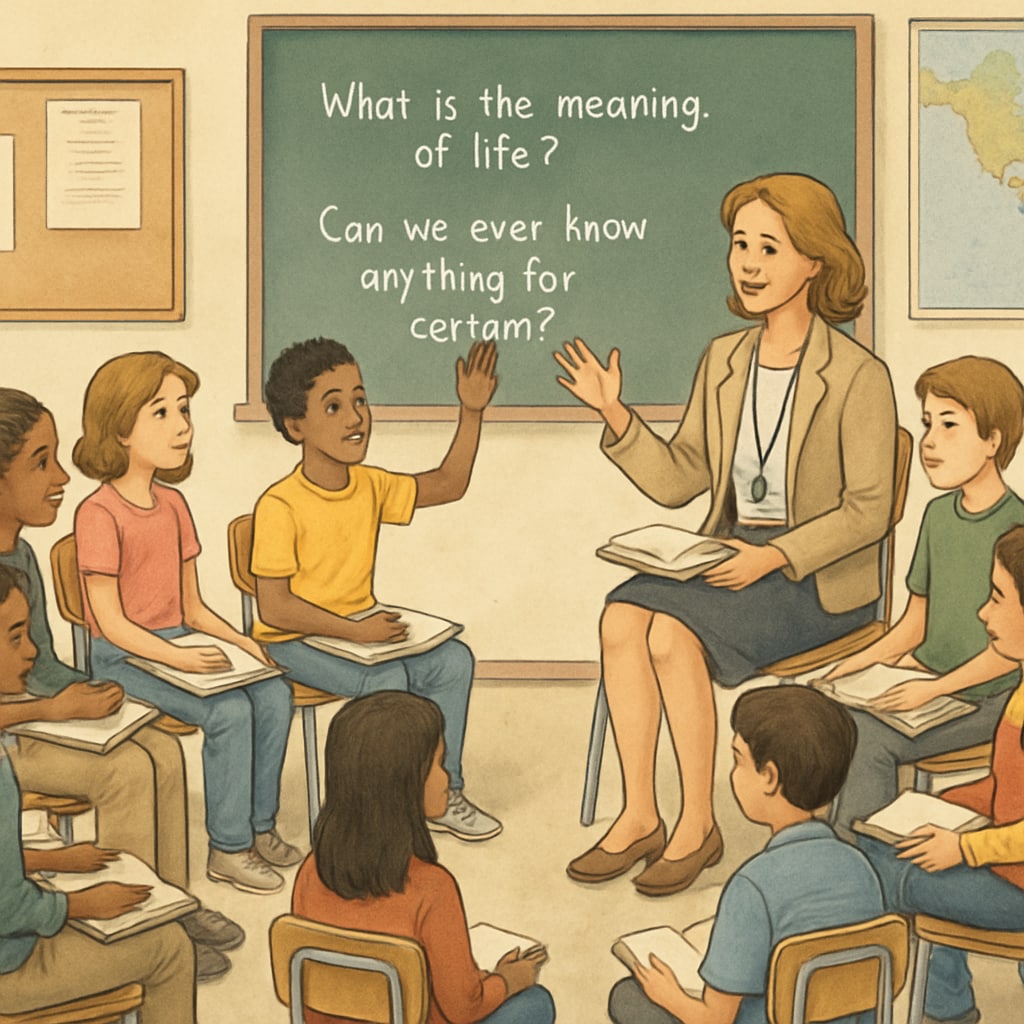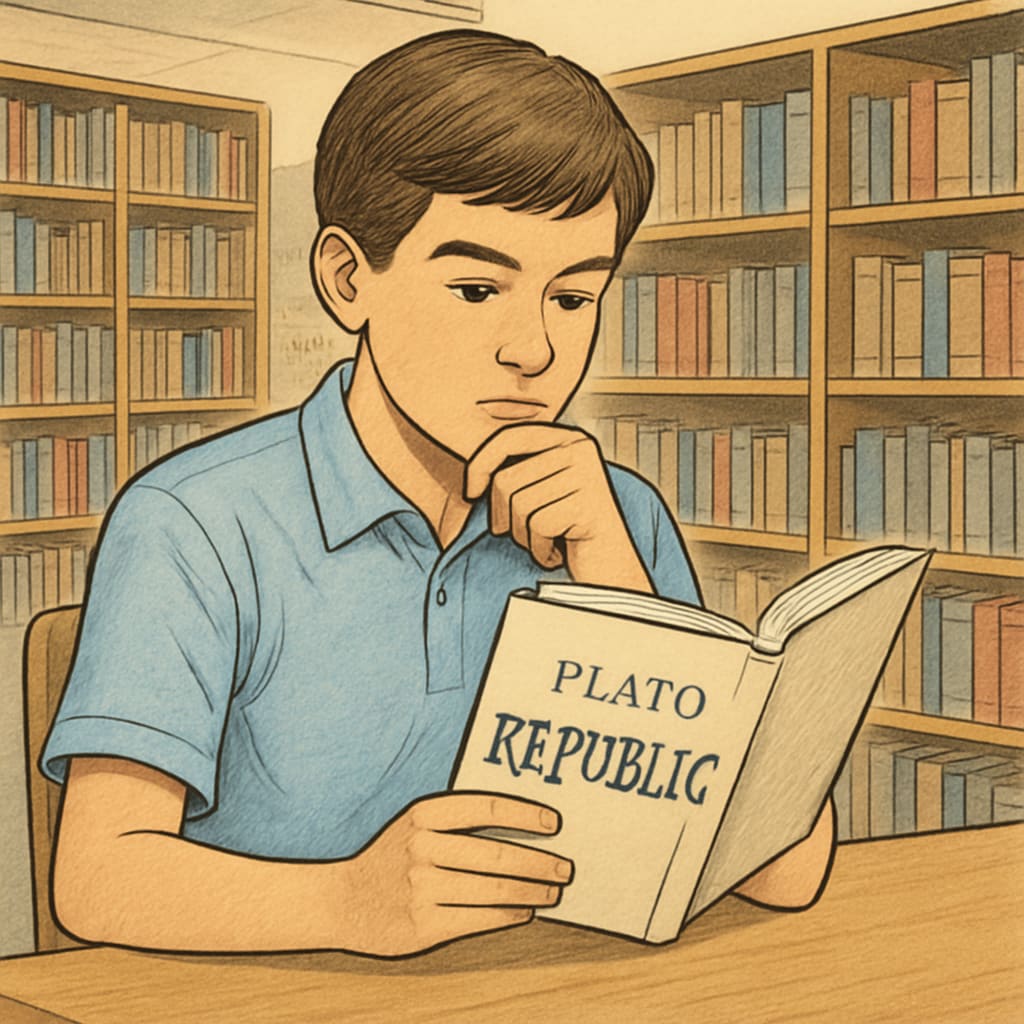Introducing psychology and philosophy to K12 students can be a transformative educational journey. By providing young learners with age-appropriate self-study resources, these disciplines encourage critical thinking, self-awareness, and deeper understanding of the world around them. This article outlines strategies and resources tailored to different age groups, making these profound subjects accessible and engaging for students.
Why Teach Psychology and Philosophy in K12 Education?
Psychology and philosophy are essential for developing a well-rounded perspective on life and learning. Psychology helps students understand human behavior and emotions, fostering empathy and self-awareness. Philosophy, on the other hand, nurtures critical thinking and ethical reasoning. Introducing these subjects early can lay the foundation for lifelong intellectual curiosity and personal growth.
For example, students exposed to philosophical questions like “What is justice?” or psychological concepts such as emotional intelligence can better navigate complex social and personal challenges. These skills are invaluable in both academic and real-world settings.

Age-Appropriate Learning Resources for Psychology and Philosophy
When introducing these subjects to young learners, it’s vital to consider their developmental stages. Below are some recommended resources tailored to elementary, middle, and high school students:
- Elementary School (Ages 6–11): Start with story-based learning. Books like Sophie’s World by Jostein Gaarder provide a fictional introduction to philosophy. For psychology, activities that explore emotions and basic human behavior can be engaging.
- Middle School (Ages 11–14): Introduce interactive tools like the app “Smiling Mind” for mindfulness exercises. Philosophy-focused podcasts, such as “Philosophy Bites,” offer bite-sized insights into big questions.
- High School (Ages 14–18): High school students can delve into classic texts like Plato’s Republic or Freud’s theories. Online courses from platforms like Coursera or Khan Academy can also provide structured learning paths.
By using a mix of books, multimedia, and interactive tools, educators and parents can cater to the diverse learning styles of students.
Strategies for Teaching Complex Concepts
Teaching psychology and philosophy requires a thoughtful approach to simplify complex ideas. Here are some effective strategies:
- Use Real-Life Scenarios: Relate abstract concepts to everyday situations. For instance, discuss ethical dilemmas students may face in their daily lives to explore philosophical principles.
- Encourage Open Discussion: Foster an environment where students feel comfortable sharing their thoughts. Group discussions and debates can make abstract ideas more relatable.
- Incorporate Creative Activities: Activities like writing reflective journals or creating mind maps can help students internalize psychological and philosophical concepts.
In addition, educators should emphasize that there are no definitive answers in these fields, encouraging students to think independently and critically.

The Role of Technology in Learning
Technology has revolutionized how students access psychology and philosophy. Online platforms like Coursera offer free introductory courses, while YouTube channels such as “CrashCourse” provide engaging video lessons. Similarly, apps like “Headspace” can introduce students to mindfulness, an essential psychological practice.
Moreover, interactive tools like philosophical games or personality quizzes can make learning fun and relatable. For example, the “16Personalities” test offers insights into different personality types, sparking curiosity about psychological theories.
Conclusion
Exploring psychology and philosophy during the K12 years is not only feasible but also highly beneficial. These disciplines equip students with critical thinking skills, emotional intelligence, and a deeper understanding of themselves and the world. By using age-appropriate resources and innovative teaching strategies, educators and parents can open the doors to these fascinating subjects, setting the stage for a lifelong love of learning.
As Friedrich Nietzsche once said, “He who has a why to live can bear almost any how.” Introducing the “whys” of psychology and philosophy to students empowers them to navigate life with purpose and insight.
Readability guidance: This article uses short paragraphs, clear transitions, and a mix of lists and examples to ensure accessibility. Images and external links are included to provide additional context.


